I have some dynamic conditions that I want to use in my Select clause. So I would like to create a "base query" like "SELECT * FROM TABLE" and after I wuold like to add conditions like "WHERE name = 'Diego' AND ...". I'm using Entity Core, and the solution I found (it's working) is as follows:
//conditions
Expression<Func<Person, bool>> foo = (p => p.Id == 1);
//select
List<Person> people = Db.People.Where(foo).ToList();
//Db is the context, People is the DbSet and Person is the model
I hope there is a simple or standard way to do that, in fact I have tried some, but they haven't worked.
Anyway where can I find a good tutorial about it, from simple to complex?
---------------------- UPDATE -----------------------------
Well, this question has marked as duplicate, but this Multiple .Where() clauses on an Entity Framework Queryable , doesn't worked for me,I don't know why, but the statement executes before the conditions, (if I do the same thing like the answer on the link), and I want to apply the conditions before the first statement execution. Yes I know I must use toList() just at the end, anyway if I do the same thing like the answer on that link, the statement will execute before, and I agree this is very strange.
---------------------- UPDATE -----------------------------
I provide some kind of proof for what I'm talking about in the images below:
Here we have a single statement execution (the result is a single Person object), in this example I'm using the code I've written above.
Here as we can see, the code: queryable = Db.People.Where(p => p.Name.Contains("El"));, is executed (the result is two Person objects), even without the method ToList(), in this example I'm using the suggested code.
Well maybe it's a entity core bug. Anyway this question is not the same of that which was been linked for many reasons.


